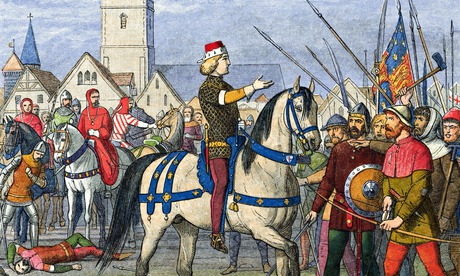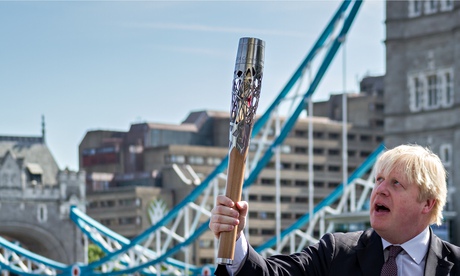Jun 17, 2014Londonderry, the U.K.’s Capital (of High Speed Internet)
By
SIMON ZEKARIA

- Hands across the divide statues, Derry, Northern Ireland.
- Visit Derry
You could be forgiven for thinking that Ofcom, the U.K. communications regulator, made a typo on Tuesday when it revealed that the city in the U.K. with the best access to superfast broadband Internet was Londonderry in Northern Ireland, not London, England’s capital.
Ofcom made the announcement following its latest study into the U.K.’s online status. The announcement also comes slap bang in the middle of London Technology Week, where some 30,000 people involved in the U.K’s technology sector converge on the capital to celebrate London’s unrivaled tech supremacy.
But it is, Londonderry, a city of less than 100,000 people, a third of the size of Northern Ireland’s largest city, Belfast, which has the best access to broadband Internet in the U.K. and not London—a global metropolis of eight million, a business hub and financial HQ of many of the world’s biggest corporations.
Londonderry’s citizens have 99% access to fiber optic networks owned by BT and cable group Virgin Media, Ofcom said, which commissioned the study by telecom data provider Analysys Mason.
Fiber-optic cables offer superfast broadband, generally running from the telephone exchange to a street “cabinet”, then to homes or businesses through a standard copper phone line, reaching download speeds of up to 80 mega-bits-per-second, BT says. There are also end-to-end fiber connections direct to premises, for faster speeds.
According to the study, which analyzed performance in 11 U.K. cities, London’s availability was only at 88%, behind smaller English cities like Birmingham, Cambridge and Exeter, as well as Cardiff in Wales,
Concerns about the slow speed of broadband Internet in central London is well-known among the tech community in the capital.
Perhaps just as worrying for London, and unlike some smaller cities, is that there was no improvement on last year’s performance.
The main reason behind’s Londonderry’s “exceptionally high figure,” according to Ofcom, is public investment into fiber networks in recent years.
The U.K. government’s department of enterprise, trade and investment upgraded around 1,300 street cabinets across Northern Ireland in 2009 to provide next-generation broadband services, Ofcom said. And BT says Londonderry, otherwise known as Derry City, is the only city in the U.K. and Ireland which has 100% of its street cabinets fiber-enabled, it says.
The eminence of Londonderry in fast broadband connection is reflected in the whole of Northern Ireland.
90% of all lines across Northern Ireland are connected to a fiber broadband cabinet following “significant investments” by the operator and the public sector, BT says. The result is that Northern Ireland is one of the best connected locations in the world, it says, with more fiber deployed than most major European countries aspire to rollout by 2015.
Still, Londonderry, which was named the U.K.’s City of Culture in 2013, can’t be too boastful.
In mobile telecom networks, rather than fixed lines, it still has work to do. Of all the cities in Ofcom’s study, only Londonderry had premises which were not covered by any mobile operators.
2012.10.26
倫敦德里宣佈慶祝文化之都活動
BBC中文網
北愛爾蘭的倫敦德里(Londonderry)
2011.8 倫敦暴動延燒 北愛遊行爆衝突
北愛爾蘭警務處(Police Service of Northern Ireland, PSNI)發言人表示,車輛挾持事件中有1名女子和她的女兒被拉出車外,且市中心的混亂狀態仍未平息。目前有4名男子遭逮捕。
發言人說:「下午5時15分,法罕(Fahan)街有1輛車遭縱火燃燒,另有1輛休旅車在勒奇(Lecky)路遭劫。」
「紀念館和警用廂型車遭到數枚汽油彈攻擊。」
她補充,某些市中心街道情況仍混亂。
「這些區域有人試圖挾持車輛。駕駛人,特別是商用車輛已經被要求避免接近這些區域並保持警戒。」
北倫敦6日發生英國數十年來最嚴重暴動,並快速延燒到倫敦其他地區以及其他城市。(譯者:中央社徐嘉偉)






